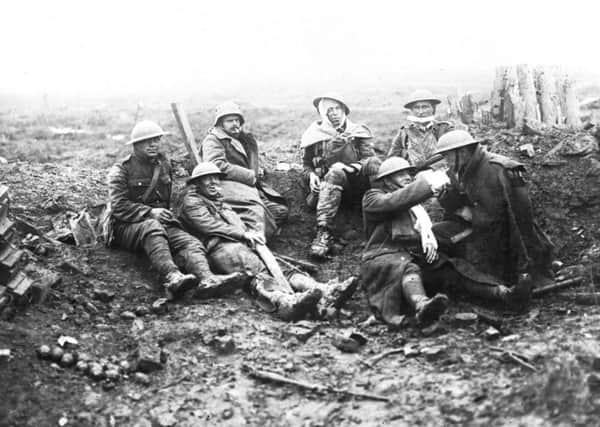YP Letters: Passchendaele holds a lesson on the folly of European wars


THE Passchendaele anniversary is a tragic reminder that wars raged in Europe for centuries and did not even end in 1918 after “the war to end all wars”.
One of the aims of closer European union following the Second World War from 1945 onwards was to ensure that war in Europe would never happen again and 70 years of peace in mainland Europe are, to me, the greatest legacy of the European Union.
Advertisement
Hide AdAdvertisement
Hide AdMy wife and I are so grateful that our two sons have not had to go to war and risk death, unlike previous generations, and a large measure of credit for that 70 years of peace in Europe is due to the European nations working together. War with Germany is now unthinkable, but I can remember hearing bombs exploding outside my grandparents’ house in Newcastle.
This is why my wife and I campaigned to Remain. We are not blind to the shortcomings of the EU organisation and the need for reform but compared with the bonus of peace, arguments about economics and immigration fade into insignificance. So. whatever the final outcome of the Brexit negotiation, let us at least remain on the best possible terms with our European friends and neighbours.
From: David Quarrie, Lynden Way, Holgate, York.
I READ Andrew Vine’s article about the awful Third Battle of Ypres known by many as Passchendaele, and it vividly reminded me of my late grandfather Raymond Bushell.
My grandfather kept a picture diary record of his time from 1914 to 1918 which I still have. He told me quite a lot about his experiences in the Army.
Advertisement
Hide AdAdvertisement
Hide AdThe most terrible things for Grandpa were seing so many fine young men slaughtered in front of intense German machine gun fire, literally walking to their deaths. He remembers the thousands of horses and mules whipped to collapse, trying to pull very heavy guns through the mud. He remembers suffering badly from trench foot.
He was eventually marched across Germany to a former Polish army barracks at Graudenz and was a POW there. The place was damp, very cold, boring and they had little or no food. He was eventually repatriated to England via Sweden and received a signed letter from the King. I also have that locked away with other mementoes of those awful, senseless, times. The suffering was immense. We must try and learn from such history.